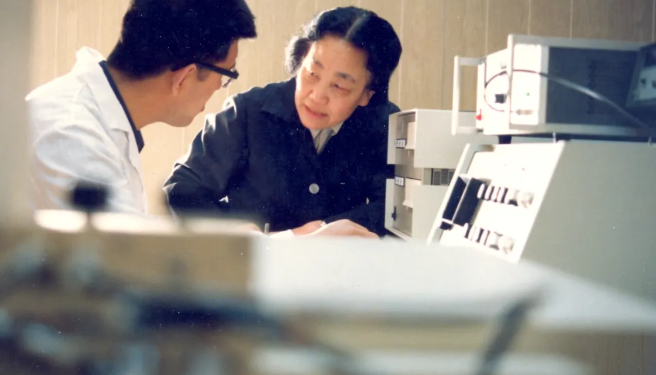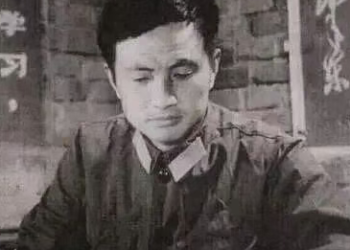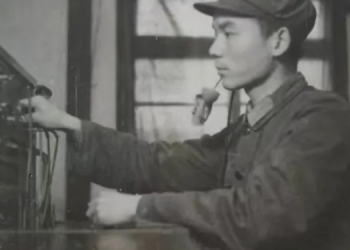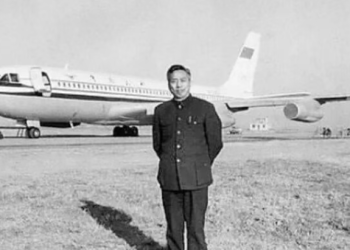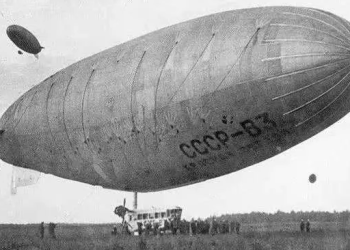Driven by a passion for science and a longing for the future, Lu Wanzhen embarked on a life-changing journey to study in the United States. She pursued advanced degrees at Illinois State University, Ohio State University, and Northwestern University, majoring in Chemical Engineering and Analytical Chemistry.
During her eight years of study and work abroad, Lu not only mastered solid foundational skills in chemical analysis but also witnessed firsthand the breathtaking pace of technological progress in the Western world. Those years abroad gave her both a sense of awe and a sense of mission—she realized that scientific advancement could transform nations and destinies alike.

In the early 1950s, as the People’s Republic of China had just been founded, the country was in a state of rebuilding and renewal. Following the example of great scientists such as Qian Xuesen, many Chinese scholars overseas chose to leave behind personal comfort and safety to return home and serve their nation.
Among them were Lu Wanzhen and her husband, Min Enze, who made the same courageous decision.
When the couple announced their plan to return to China, their professors and friends tried hard to persuade them to stay. After all, in the United States, they had everything—a stable life, a bright future, and financial security. But to Lu and Min, wealth and status were fleeting illusions compared to the call of duty that echoed in their hearts.
“We went to America to learn knowledge and technology, not to stay there forever,” Lu later recalled.
“Many of our classmates thought the same. Our hearts had always belonged to China.”
In 1955, the couple boarded the SS President Wilson in San Francisco and, after a long and winding journey across the Pacific, finally set foot again on the soil of their motherland. It was a homecoming not just of two scientists, but of two hearts that beat in rhythm with their country’s destiny.
Upon returning, Lu Wanzhen dedicated herself to advancing China’s petroleum chemistry. She developed a large number of analytical methods for petroleum products and achieved major breakthroughs in chromatographic and spectroscopic analysis.

Her exceptional skill and precision earned her the nickname:
“The sharp eyes of China’s petrochemical industry.”
Before crude oil can be refined, it must first be analyzed—each component identified and quantified. Only through accurate analysis can engineers determine how to refine crude into kerosene, gasoline, or diesel efficiently. In short, accurate analysis was the cornerstone of industrial progress.
In petrochemical production, analytical instruments are indispensable. Lu often said,
“Without these instruments—our eyes—production would be blind.”
One of the most famous stories about Lu Wanzhen took place at the Daqing Refinery, and it is still retold today.
At the time, she was overseeing the trial run of China’s first domestically designed catalytic reforming unit. While most product indicators met the required standards, one stubborn issue persisted: the xylene content failed to reach the target.
After observing the process closely, Lu instructed her team to reanalyze the sample using a newly installed gas chromatograph. When the chromatogram appeared, Lu immediately noticed an anomaly—there was gasoline mixed into the product.

“There must be a leak somewhere,” she concluded firmly.
Although the technicians were skeptical, they conducted a detailed inspection and, to their astonishment, discovered the exact leaking point in the production unit. The refinery workers were in awe. From then on, whenever her name was mentioned, people would say with admiration:
“Director Lu’s eyes can see through steel!”
With those “keen eyes,” Lu Wanzhen helped China achieve milestone after milestone in petrochemical science.
In the early 1960s, when chromatographic technology was still new to the world, Lu successfully developed China’s first indigenous chromatograph. Later, she continued her pioneering research at the Research Institute of Petroleum and Petrochemical Science, establishing multiple chemical and physical analysis methods that filled crucial gaps in China’s scientific capabilities.
Her work laid the foundation for modern analytical chemistry in China and nurtured a generation of scientists who would go on to shape the nation’s industrial growth.
Even in her later years, Lu refused to slow down. She turned her attention to near-infrared spectroscopy (NIR)—a highly efficient, non-destructive analytical technique widely used in agriculture, food, chemical, and pharmaceutical industries.
At first, few in China believed in its potential. Critics dismissed it as impractical. But Lu’s scientific intuition told her otherwise.
She decided to form China’s first NIR research team, facing strong opposition from peers who deemed it a waste of resources. Yet she stood firm:
“This technology will revolutionize petrochemical analysis—it saves time, money, and manpower.”
Time proved her right. Today, Lu Wanzhen is recognized as the founder and pioneer of near-infrared spectroscopy in China. Her breakthroughs in chromatography and NIR analysis not only advanced China’s scientific standards but also injected powerful momentum into the nation’s petrochemical industry.

Throughout her career, Lu trained 26 master’s students, 20 doctoral students, and 5 postdoctoral researchers.
She often told her students:
“Instruments are our eyes, but people are our brains. You can’t afford to lose either.”
To young researchers eager for quick success, her advice was both simple and profound:
“To succeed, you must abandon greed and impatience. In both research and life, avoid chasing fame and fortune. Work quietly and steadily. When your foundation is deep, success will come naturally—like streams converging into a vast ocean.”
Lu Wanzhen was more than a chemist; she was a pioneer who deciphered the molecular “code” of petroleum, illuminating China’s path toward scientific independence.
As one of the founding figures of China’s petroleum analytical chemistry, she devoted her life to venturing into the unknown—the “no-man’s-land” of scientific innovation. Her research did not merely analyze substances; it revealed the spirit of inquiry that fuels a nation’s progress.
Her life reminds us that true science is not just about precision—it’s about vision, courage, and the willingness to serve something greater than oneself.
